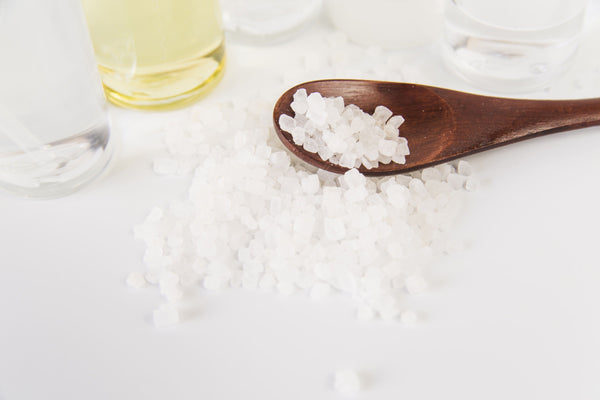
Potassium

Potassium
Potassium stands out among essential minerals due to its exceptional role in maintaining your health. It is a common alkali metal that occurs naturally. Potassium is the body's third most prevalent mineral, essential for various biological activities. Approximately 80% of potassium is found in muscles, while only 20% is found in bones. This mineral is necessary for the modulation of fluid balance, and nerve impulses. A potassium deficiency can cause different health problems. Hypokalemia or low potassium levels can cause muscle weakness, spasms, and irregular heartbeats1.
Read on to learn the health benefits of potassium, its food sources, and recommended intake.
Improves Heart Health
Potassium is crucial in improving heart health by regulating blood pressure and reducing the possibility of heart disease. Potassium reduces blood pressure by aiding the body in eliminating excess sodium. Elevated sodium levels can elevate blood pressure, particularly in individuals with hypertension. Research from multiple studies indicates that increasing potassium intake can lead to a decrease in both systolic and diastolic blood pressure2. Potassium also contributes to vasodilation. It involves the relaxation and expansion of blood vessels, facilitating smoother blood flow. This mechanism aids in reducing the strain on the heart and blood vessels, consequently helping to lower blood pressure.
Enhances Nervous System
Potassium offers a vital contribution to the optimal functioning of the nervous system. The movement of potassium ions enables nerve impulses, which facilitate communication between the brain and various body parts. These ions are crucial in generating and transmitting nerve signals, ensuring smooth muscle contractions, heartbeat regulation, reflexes, and other physiological functions. The exchange of potassium ions across the membranes of nerve cells alters the cell's voltage, thereby initiating nerve impulses. A potassium deficiency can disrupt this delicate equilibrium and impair the nervous system's ability to generate impulses efficiently3.
Prevents Strokes
Strokes, caused by inadequate blood flow to the brain, can cause damage to brain cells and function and, in extreme cases, death. Potassium-rich meals have been related to a lower incidence of stroke. Studies involving large populations have consistently shown that people who consume more potassium have a lower chance of stroke4.
Improves Bone Density
Often overlooked for bone health, potassium plays a role in maintaining bone density by collaborating with other nutrients. Strong bones rely on a balance of minerals like calcium. Osteoporosis, known for weakening bones, is linked to low calcium levels. Surprisingly, potassium-rich diets could aid bone health by minimizing calcium loss through urine, potentially helping prevent osteoporosis. In a study of 62 healthy women aged 45 to 55, researchers discovered that those who consumed more potassium had the greatest total bone density5.
Prevents Kidney Stones
Potassium primarily contributes to waste elimination and detoxification through the kidneys. Adequate potassium consumption can reduce the risk of kidney stone formation and promote kidney health overall. Numerous studies have shown that a potassium-rich diet minimizes the risk of developing kidney stones by significant amounts6.
Reduces Water Retention
Potassium is an effective treatment for the retention of water in your body. Water retention, which frequently causes bloating and discomfort, can be alleviated by consuming enough potassium. Potassium promotes increased urine production and facilitates sodium excretion, both of which contribute to the reduction of fluid retention. According to research, people who consume potassium-rich diets see significant reductions in water retention, enabling a more comfortable and less swollen body7.
Food Sources of Potassium
A wide variety of foods and beverages serve as excellent sources of potassium. These include fruits, vegetables, legumes like soybeans, potatoes, meats, poultry, fish, milk, yogurt, nuts, whole-wheat flour, brown rice, coffee, tea, and other nonalcoholic beverages8.
Here are the recommended daily intakes of potassium (in mg/day) for different age groups:
For Males:
- 9–13 years: 2,500 mg
- 14–18 years: 3,000 mg
- 19+ years: 3,400 mg
For Females:
- 9–13 years: 2,300 mg
- 14–18 years: 2,300 mg (non-pregnant), 2,600 mg (pregnant), 2,500 mg (lactating)
- 19–50 years: 2,600 mg (non-pregnant), 2,900 mg (pregnant), 2,800 mg (lactating)
- 51+ years: 2,600 mg
Potassium is an essential mineral that performs various bodily functions and maintains overall health. It boosts heart health by controlling blood pressure, improves nervous system efficiency, aids in stroke prevention, increases bone density, inhibits kidney stones, lowers water retention, and promotes general well-being.






